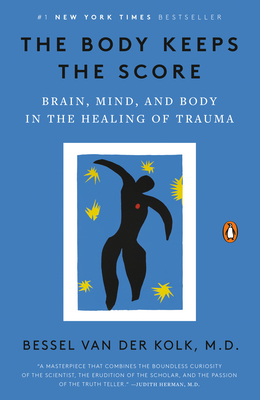
The Heart of Trauma: Healing the Embodied Brain in the Context of Relationships (Norton Series on Interpersonal Neurobiology)
Description
How each of us can become a therapeutic presence in the world.
Images and sounds of war, natural disasters, and human-made devastation explicitly surround us and implicitly leave their imprint in our muscles, our belly and heart, our nervous systems, and the brains in our skulls. We each experience more digital data than we are capable of processing in a day, and this is leading to a loss of empathy and human contact. This loss of leisurely, sustained, face-to-face connection is making true presence a rare experience for many of us, and is neurally ingraining fast pace and split attention as the norm.
Yet despite all of this, the ability to offer the safe sanctuary of presence is central to effective clinical treatment of trauma and indeed to all of therapeutic practice. It is our challenge to remain present within our culture, Badenoch argues, no matter how difficult this might be. She makes the case that we are built to seek out, enter, and sustain warm relationships, all this connection will allow us to support the emergence of a humane world.
In this book, Bonnie Badenoch, a gifted translator of neuroscientific concepts into human terms, offers readers brain- and body-based insights into how we can form deep relational encounters with our clients and our selves and how relational neuroscience can teach us about the astonishing ways we are interwoven with one another. How we walk about in our daily lives will touch everyone, often below the level of conscious awareness.
The first part of The Heart of Trauma provides readers with an extended understanding of the ways in which our physical bodies are implicated in our conscious and non-conscious experience. Badenoch then delves even deeper into the clinical implications of moving through the world. She presents a strong, scientifically grounded case for doing the work of opening to hemispheric balance and relational deepening.
Praise for The Heart of Trauma: Healing the Embodied Brain in the Context of Relationships (Norton Series on Interpersonal Neurobiology)
Deepening
our understanding of the inherent desire for connection, our capacity to
experience the traumatic events that disrupt it, and the relational presence
that heals it, Badenoch’s book should be required reading for all therapists.
— Psych Central
Throughout this book, Bonnie Badenoch demonstrates how research in neuroscience helps us to find effective ways to heal from the damaging effects of trauma in our lives. Every few pages she invites us to pause to meditate on our own experience and understanding of the guiding principles of healing being explored. Adding to the overall quality and effectiveness of this book is the atmospheric quality of compassion that invites us to experience the healing power of learning to being tender-hearted toward ourselves and others in the midst of our difficulties. The process of neuroscience, expanding into personal experience, expanding into compassionate love, expands into an open-ended invitation for us to ponder the spiritual depths in which we as human beings seek to find the ultimate meaning of our lives.
— James Finley, PhD, author of The Contemplative Heart and Merton's Palace of Nowhere
Badenoch's book guides us in how to use neuroscience for deepening our relational capacity with ourselves and others. In this exciting book, Badenoch uniquely captures the poetry of neuroscience and makes a compelling case for the relational responses in trauma and recovery. She integrates the latest neuroscience, supporting our left-brain comprehension. Using this left-brain research can support greater deepening in our right-brain, relational-functioning; vital in our current unbalanced left-shifted culture and in mitigating and healing traumas.
— Susan Gantt, PhD, Director, Systemics-Centered Training and Research Institute, Emerita Faculty, Emory University School of Medicine
Bonnie Badenoch's mastery of nonjudgmental presence and her honoring of the sacredness and depth of heart in each person create a profound safety and tenderness that foster deep healing from trauma. With extensive grounding in neurobiology, her book will be a guiding inspiration to therapists who focus their work on providing a nurturing, life-changing relationship experience for clients.
— Robin Ticic, HP Psychotherapy (Germany), co-author of Unlocking the Emotional Brain













